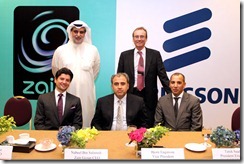Nokia Siemens Networks (NSN) today announced its strategy to focus on mobile broadband and services and the launch of an extensive global restructuring programme.
NSN plans to reduce its global workforce, which stood at 74,000 on November 1, 2011 by approximately 17,000 or 23 per cent by the end of 2013. These planned reductions are expected to be driven by aligning the company’s workforce with its new strategy as well as through a range of productivity and efficiency measures. These planned measures are expected to include elimination of the company’s matrix organisational structure, site consolidation, transfer of activities to global delivery centres, consolidation of certain central functions, cost synergies from the integration of Motorola’s wireless assets, efficiencies in service operations, and company-wide process simplification.
The company said it would begin the process of engaging with employee representatives in accordance with country-specific legal requirements to find socially responsible means to address these reduction needs.
The infrastructure vendor also said it would target end-to-end mobile network infrastructure and services, with a particular emphasis on mobile broadband.
NSN plans to realign its business to focus on mobile broadband (including optical), customer experience management and services. The company’s Services organisation will further strengthen its highly-efficient global delivery system. Business areas not consistent with the new strategy are planned to be divested or managed for value. Quality and innovation will continue to be priorities for the company, with on-going investment in both areas.
The company is targeting to reduce its annualised operating expenses and production overheads by €1 billion (US$1.33 billion) by the end of 2013, compared to the end of 2011. While these savings are expected to come largely from organisational streamlining, the company will also target areas such as real estate, information technology, product and service procurement costs, overall general and administrative expenses, and a significant reduction of suppliers in order to further lower costs and improve quality.
“We believe that the future of our industry is in mobile broadband and services – and we aim to be an undisputed leader in these areas,” said Rajeev Suri, CEO of NSN. “At the same time, we need to take the necessary steps to maintain long term competitiveness and improve profitability in a challenging telecommunications market.”




